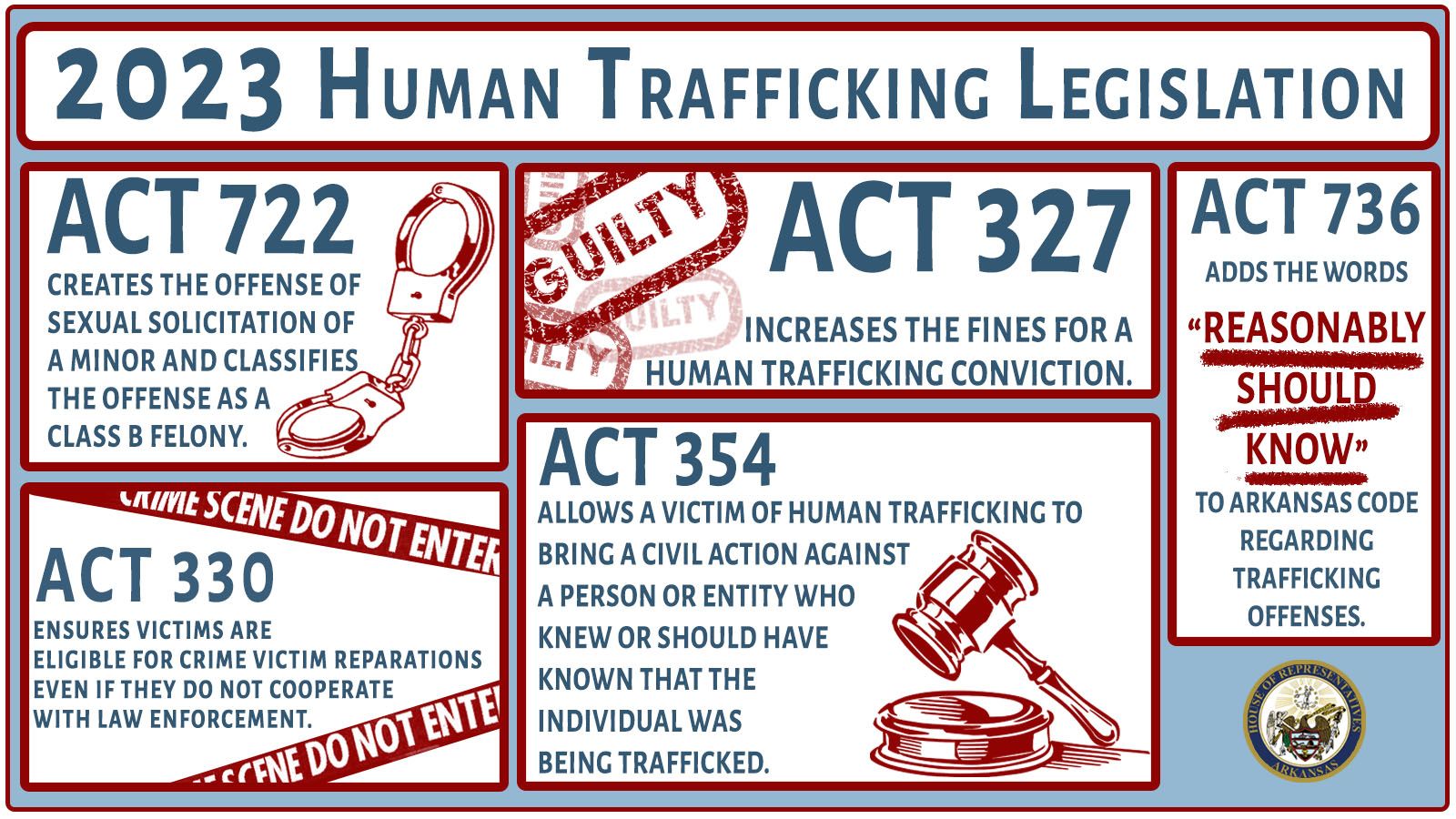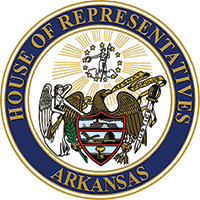
Since its inception in 2007, the National Human Trafficking Hotline has identified 557 cases of human trafficking in Arkansas. Close to 1,500 victims were identified in these cases.
Human trafficking, also known as trafficking in persons or modern-day slavery, is a crime that involves compelling or coercing a person to provide labor or services or to engage in commercial sex acts. The coercion can be subtle or overt, physical or psychological.
For the last several years, the General Assembly has made a continual effort to strengthen our laws regarding human trafficking. In the most recent session, we passed legislation to expand civil remedies for trafficking victims, increase fines for trafficking convictions, and clarified language in existing laws.
Act 354 allows a victim of human trafficking to bring a civil action against a person or entity who knew or should have known that the individual was being trafficked.
Act 327 increases the fines for a human trafficking conviction and trafficking-related charges to a range between $5,000 and $15,000. The bill directs that the fines be divided between specified funds that support exploited children and trafficking victims.
Act 330 ensures victims are eligible for crime victim reparations even if they do not cooperate with law enforcement.
Act 722 creates the offense of sexual solicitation of a minor and classifies the offense as a Class B felony.
Act 736 adds the words “reasonably should know” to Arkansas code regarding trafficking of persons offenses. It allows individuals to be charged if they knew or reasonably should have known they were benefitting financially or actively engaged in trafficking.
Act 772 clarifies the definition of “serious harm” under the Human Trafficking Act of 2013.
We will continue to review ways to prevent future trafficking cases and raise awareness of the issue.
To report suspected human trafficking, call the National Human Trafficking Hotline toll-free hotline at 1-888-373-7888 or text the hotline at 233733.
